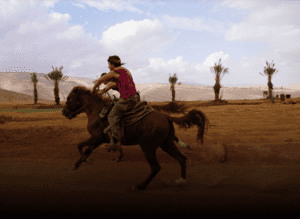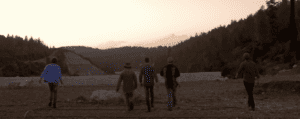“At the end of every three years, even in the same year, thou shalt bring forth all the tithe of thine increase, and shall lay it up within thy gates.” (Deuteronomy 14:28)
The land of Israel is considered holy, and so we observe certain agricultural laws that only apply here. We have a unique set of mitzvot known as “terumot” and “maasrot,” in which part of the food grown in Israel is set apart and made special. Food from which terumot and maasrot has not yet been taken is known as “tevel” and is not considered kosher and may not be eaten. These commandments do not only apply to raw produce; any food or drink that contains ingredients grown in the land of Israel must made from ingredients which have undergone “terumot” and “maasrot.”
Historically, during the time of the Temple in Jerusalem, people separated a small part of their crop (approximately 2%) to be brought to the Temple as a “terumah” to bring to the kohen (high priest) for him to eat. Another 10% was designated as “maaser,” or “maaser rishon” which literally means one-tenth, or the first one-tenth. The portion was given to the Levite Tribe. Another section was separated, known as “maaser ani,” which means one-tenth for the poor. This portion was donated to needy, hungry people.
Although we no longer have the Temple, we still practice the laws of “terumah” and “maaser.” Today, one is obligated to separate portions of their crop, and name the portions as “terumah,” “maaser,” etc. There are two situations in which one must separate food grown in Israel – one is when you are unsure whether terumah and maaser have been performed, the second is when you are sure they have not been performed (for example, fruit that you grew yourself). One must separate approximately 1% of the food, and that 1% is divided into terumah and maaser.
You find yourself in a situation where the produce available to you is “tevel.” You may even find yourself hesitant to grow crops in Israel because you are worried about performing the ritual correctly. Don’t worry – God gave us these commandments to become closer to Him and feel happiness, satisfaction, and a connection to His holy gifts in the land of Israel. If you do wish to perform these rituals yourself, there are detailed instructions online on how to perform it properly.
When shopping for your produce, if the store has a “Kosher” certificate, you can know that they already performed the terumah and maaser for you, and you can freely partake in the fruit and vegetables that they sell. The same applies to prepared foods that contain ingredients grown in Israel. We are so fortunate to be able to grow fruit in the holy land of Israel, and to have the opportunity to sanctify it for God. This is a mitzvah that the Jewish people yearned to fulfill for thousands of years in exile, and now we are finally once again able to connect to our land, and connect to God through the agricultural gifts He gives us.




